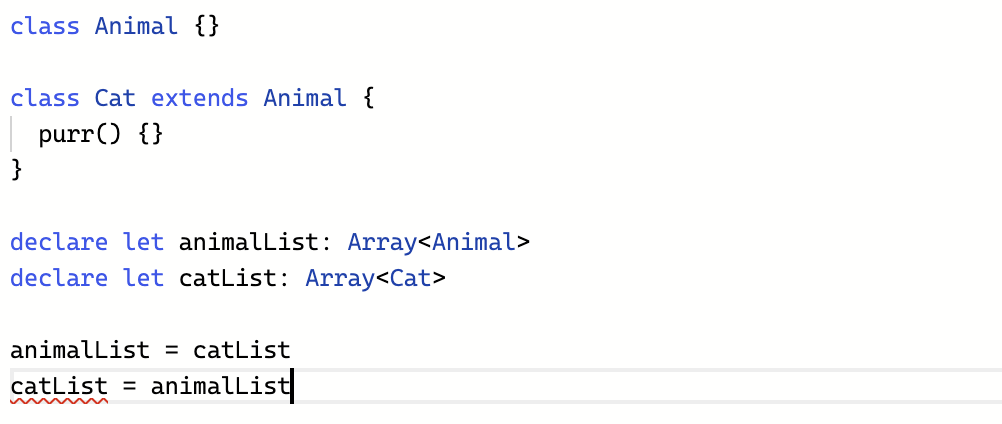Easily understand Contravariance of function arguments in TypeScript
Take a look at this code snippet
ts
ts
Can cat and animal be assigned to each other ?

The answer looks simple, cat to be assigned to animal, but not the other way around. This looks obvious.
Now let’s have two functions which accept Animal and Cat.
ts
ts
Can feedAnimal and feedCat be assigned to each other?

Ok, now feedCat cannot be assigned feedAnimal, which seems a bit strange, comparing to the previous case.
Because function argument in TypeScript is Contravariant.
Here is great post explaining What are covariance and contravariance, I won’t do it here in my post.
Just I’ve thought about a great analogy to help easily understand why function argument is Contravariant.
Think about an pipe connector which connects different pipe sizes.

Water flows in and out, the size of entry is bigger and the pipe, the size of exit is smaller than the pipe.
Now if we are to replace a valve, what can we use ?

We definitely need a connector which has even bigger entry and smaller exit, so that it could fit in without water loss.
Well, in real world, we only choose the size just fits, here is just a analogy.
Think of connector as function, then
- function argument type is contravariant
- function return type is covariant
Should Array<T> be covariant?
TypeScript treats Array<T> as covariant.

This looks straightfoward but it is not sound. Think about following code.
ts
ts
TypeScript doesn’t complain, but animalList and catList points to the same object with different types, which leads to the runtime error.
The topic is deep which myself doesn’t know much, but just remember that TypeScript type system helps but it has flaws in soundness.
